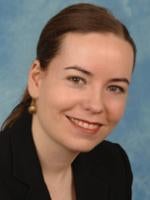Background
The response by business to COVID-19 is changing both business and how people work, triggering many tax considerations. We set out below some frequently asked questions.
If I provide an employee affected by COVID-19 with emergency accommodation, food, transport or other assistance (such as face masks and hand sanitiser) do I need to pay Fringe Benefits Tax (FBT)?
Some benefits provided to employees who are or is at risk of becoming sick (including with COVID-19) are exempt from FBT. Additionally, assistance provided to an employee who has been located in a high-risk area and has been relocated or otherwise required to self-isolate is also exempt from FBT. This may include:
- temporary emergency meals, food supplies and accommodation for employees stranded overseas due to travel restrictions
- flights for employees working overseas to return to Australia.
If I provide an employee affected by COVID-19 with emergency health care do I need to pay FBT?
You may be liable for FBT if you provide employees affected by COVID-19 with emergency health care in addition to their salary or wages. Exemption from FBT for emergency health care only applies to health treatment provided:
- by an employee of the employer (or an employee of a related company)
- on the employer's premises (or premises of the related company)
- at or adjacent to an employee's worksite.
FBT will apply if you pay for an employee's ongoing medical or hospital expenses. However, if you pay for transporting your employee from the workplace to seek medical assistance, the cost of providing the transport is ordinarily exempt from FBT.
If I provide my employees with equipment to work from home, will this be subject to FBT?
If you provide your employees with a laptop, mobile phone, printer or other portable electronic devices to enable them to work from home, these will usually be exempt from FBT provided they are used primarily for use in the employee’s employment.
If I provide employees with the flu vaccinations, will this be subject to FBT?
The provision of a free flu vaccination to employees would ordinarily be exempt from FBT.
My employees were due to attend an event that has been cancelled. I paid for them to attend and the cost of them attending is non-refundable. Can I claim an income tax deduction?
Arguably any amount paid and for which you cannot get a refund is a deductible expense on the basis that it was incurred for the purpose of gaining or producing assessable income.
Are the costs related to cancelling my employees' business travel deductible?
Similarly, travel cancellation costs are deductible to the business where the employee would have been travelling for business purposes.
What if my business is having difficulty paying my employee's super guarantee contributions by the due date?
The ATO has advised that employers should pay as much as they can by the due date to reduce the super guarantee charge. Employers will then need to lodge a Super guarantee charge statement and pay the charge. If this is done within the month, there will be no penalties. Interest will still apply. regularly audit their supply contracts and seek advice regarding available options
My employee is temporarily working overseas because of travel restrictions. Does this affect my super guarantee obligations?
There is no change to your pay as you go withholding (PAYGW), FBT and super guarantee obligations.
My employees is temporarily working in Australia because of travel restrictions. What are my employer obligations?
You will generally have the same tax obligations for all employees you have working in Australia. This includes PAYGW, FBT and super guarantee. Where foreign employees do not have an Australian tax liability on their employment income earned in Australia, there is no PAYGW obligations.
My employee is temporarily working in Australia because of travel restrictions and I paid superannuation on their behalf. Can they withdraw that super when they leave Australia?
The employee may withdraw any superannuation paid on their behalf (subject to eligibility requirements and taxation) when they leave Australia permanently. The employee will need to apply for a departing Australian superannuation payment.
I am a foreign employer and my employee, a non-resident, is temporarily working in Australia due to travel restrictions. Do I have to register for PAYGW?
No.
I am a director of a foreign company. Due to travel restrictions, I need to attend a board meeting via phone or other electronic means whilst I'm in Australia. Does this mean that central management and control of the company is located in Australia?
The ATO has stated that they will not apply compliance resources to determine if an entity's central management and control is in Australia if the reason for holding board meetings in Australia or directors attending board meetings from Australia is because of impacts of COVID-19.
If employees of a non-resident company are in Australia and unable to return to their home jurisdiction, does this give rise of a permanent establishment where they continue to work in Australia?
The ATO has indicated that a foreign incorporated company that is not an Australian tax resident will not be deemed as having an Australian permanent establishment if it meets all of the following criteria:
- the foreign incorporated company did not have a permanent establishment in Australia before the impacts of COVID-1
- there are no other changes in the company circumstances
- the unplanned presence of employees in Australia is as a consequence of them being restricted in their travel/movement as a consequence of COVID-19.
Can I defer the due dates for tax payments that were due before 23 January 2020?
No. However, you can request a remission of interest that has accrued on those debts from 23 January 2020 and / or an interest-free payment arrangement.
Can I defer the due dates for tax payments that were due after 23 January 2020?
Yes. You are able to defer by up to six months the payment date of amounts due through the business activity statement (including PAYG instalments), income tax assessments, fringe benefits tax assessments and excise.
Can I claim back the PAYG instalments that I have already paid if my business will not make enough income this year to have a tax liability?
Yes, you will be able to vary the instalment rate if the instalments you have been paying will be more than the tax liability you owe at the end of the year. You are able to vary the amount to either zero or to a negative figure, for the amount you have already overpaid this financial year, generating a refundable credit. The ATO has stated that they will not apply penalties or charge interest to varied instalments for the 2019-20 financial year.
Can I stop paying instalments this financial year in order to obtain cash flow relief?
You can ask the ATO to withdraw your instalment notice for the next two quarters. The ATO can also backdate the withdrawal to the start of this financial year, so you can get a refundable credit for the payments you have already made.
However, you will still need to pay your full tax liability when you lodge your tax return at the end of this financial year.
Can I vary my PAYG withholding amounts from employees to zero for the next quarter?
No. You will still need to report and pay the amounts you withhold from your employee's wages.
Am I entitled to have all interest and penalties I currently owe remitted?
The COVID-19 remission only applies to interest and penalties that were incurred on or after 23 January 2020. It does not apply to interest or penalties that were already incurred before 23 January 2020. However, for debts owed before 23 January 2020, the ATO has stated that they can:
- Consider whether your circumstances before 23 January 2020 would enable you to be granted a remission of interest and/or penalties
- Arrange to stop interest being charged while the COVID-19-affected period continues, and for the life of a payment arrangement if you put one in place.
Can I adjust an existing payment arrangements?
The ATO has stated that they will consider adjusting your repayments to something that is manageable within your current cash flow. A low interest arrangement can also be put in place. Businesses with an existing payment arrangement will need to phone the ATO to discuss suitable options.
My business is on a quarterly reporting cycle. Can I opt into monthly GST reporting in order to get quicker access to the GST refunds that I am entitled to?
Yes, however once you choose to report and pay GST monthly, you must keep reporting monthly for 12 months before you can elect to revert back to quarterly reporting.
*This information is accurate as of 900 am Tuesday 24 March 2020 and is subject to change as this situation evolves.
This publication/newsletter is for informational purposes and does not contain or convey legal advice. The information herein should not be used or relied upon in regard to any particular facts or circumstances without first consulting a lawyer. Any views expressed herein are those of the author(s) and not necessarily those of the law firm’s clients.





 />i
/>i

